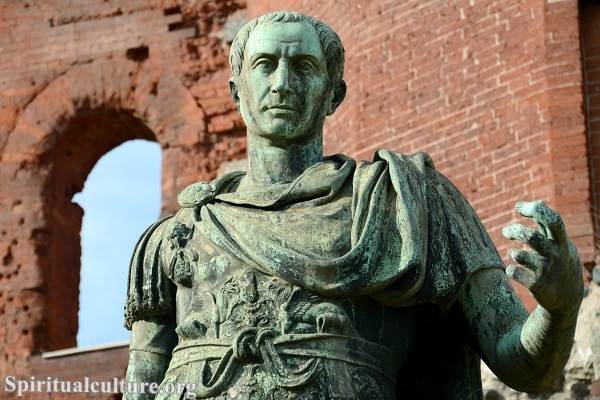Across the vast spiritual landscape of the world, one thread runs quietly but powerfully through every tradition, every scripture, every whispered prayer: forgiveness. It is not merely a moral principle. It is a sacred act — a choice to heal, release, and begin again. But why does forgiveness stand so centrally in the heart of religion? Why is it not only encouraged but commanded by prophets, saints, and sages?
As Spiritual Culture, we invite you into a deeper reflection. This article will explore forgiveness not just as an ethical virtue, but as a spiritual necessity — a gateway to peace, a mirror of the Divine, and a bridge between souls.
Let us walk this path together.
The Universal Need for Forgiveness
The Human Condition: Wounded and Wounding
No matter the religion or region, human life is marked by imperfection. We fall short. We hurt and are hurt. Whether through thoughtless words, broken promises, deep betrayals, or lingering resentments — we carry wounds.
Some wounds are external, but the most painful are often hidden inside — a bitterness that poisons joy, a shame that clouds identity, or a silent grudge that hardens the heart.
In this shared brokenness, every religion sees a need: a way back to wholeness. Forgiveness is that way.
The Spiritual Cost of Unforgiveness
Unforgiveness is not a neutral state. It is an active burden. The longer we hold it, the heavier it becomes. Bitterness erodes compassion. Vengeance blinds us to beauty. And guilt becomes a chain around the soul.
Religious traditions understand this deeply. To forgive is not just to set the other person free — it is to free yourself from a prison you did not know you were building.
What the Sacred Texts Teach
Christianity: Forgive as You Are Forgiven
In the Christian tradition, forgiveness is not optional — it is foundational. Jesus teaches:
“Forgive, and you will be forgiven.” (Luke 6:37)
“If you do not forgive others their sins, your Father will not forgive your sins.” (Matthew 6:15)
The Lord’s Prayer itself includes the plea: “Forgive us our trespasses, as we forgive those who trespass against us.”
Forgiveness is not merely about morality — it is the heart of grace. Christians are called to reflect the mercy of God. To forgive, then, is to imitate Christ, who from the cross cried, “Father, forgive them, for they know not what they do.” (Luke 23:34)
Islam: Forgiveness Is Divine
In Islam, forgiveness (maghfirah) is a key attribute of God. The Qur’an repeats:
“Indeed, Allah is Forgiving and Merciful.” (Surah Al-Baqarah 2:173)
Muslims are encouraged to seek God’s forgiveness regularly and to extend it to others. Prophet Muhammad (peace be upon him) said:
“Show mercy to those on the earth, and the One above the heavens will show mercy to you.” (Tirmidhi)
To forgive in Islam is to align oneself with the Divine character of compassion, releasing anger and trusting in God’s justice.
Judaism: A Path of Teshuvah
In Judaism, forgiveness is part of the powerful process of Teshuvah — “returning” to God. This return includes recognizing one’s wrongdoing, making amends, and seeking both human and divine forgiveness.
The Yom Kippur, or Day of Atonement, is devoted to communal and personal repentance. But crucially, God does not forgive sins between people unless they first seek forgiveness from one another.
“For transgressions between a person and God, Yom Kippur atones;
But for transgressions between a person and another, Yom Kippur does not atone, until they have reconciled.” (Mishnah Yoma 8:9)
Forgiveness in Judaism is tied not just to justice, but to deep healing and relational repair.
Buddhism: Letting Go to Be Free
Buddhism teaches that clinging to anger is a form of suffering. The Buddha said:
“Holding on to anger is like grasping a hot coal with the intent of throwing it at someone else — you are the one who gets burned.”
Forgiveness in Buddhism is not about condoning harm but releasing attachment to pain. Through compassion and mindfulness, the practitioner learns to see even those who wronged them with understanding.
Forgiveness becomes part of the path to liberation, dissolving hatred and cultivating equanimity.
Hinduism: Karma and Releasing Hatred
In Hinduism, forgiveness (kshama) is a divine quality. The Mahabharata says:
“Forgiveness is the virtue of the brave. It is the sacrifice of the ego. It is the peace of the soul.”
Forgiveness is seen as a spiritual discipline — part of dharma. While karma holds all accountable, forgiveness frees the soul from negative cycles and clears the heart for devotion and inner peace.
It is not weakness, but the highest form of strength.
Why Forgiveness Matters Spiritually
1. It Mirrors the Divine
All major faiths describe God (or the highest reality) as merciful, compassionate, and abundant in pardon. To forgive is to reflect this divine nature.
As the Bhagavad Gita teaches:
“Among qualities, I am forgiveness.” (10:4)
To be forgiving is to become more like the One we worship — to embody sacredness in everyday life.
2. It Heals Relationships
Forgiveness is the medicine of community. Without it, families fracture, friendships decay, and nations remain divided. With it, reconciliation becomes possible.
Whether whispered in tears, offered in letters, or simply lived out through renewed kindness — forgiveness restores what seemed beyond repair.
3. It Frees the Soul
The longer we cling to unforgiveness, the more our own hearts suffer. Anger becomes our shadow. Fear becomes our lens. But when we forgive, we reclaim freedom.
As Desmond Tutu said:
“Forgiveness says you are given another chance to make a new beginning.”
In this way, forgiveness becomes a rebirth of the soul.
When Forgiveness Feels Impossible
Deep Hurts and Injustice
Some wounds cut so deeply — abuse, betrayal, violence — that forgiveness feels like denial of pain or even injustice.
Religious wisdom doesn’t minimize this. Forgiveness is not always immediate. It is not forgetting. It is not saying “It was okay.”
Rather, it is a process. A journey. Sometimes forgiveness begins with simply wanting to want to forgive.
And sometimes, it is also okay to forgive from a distance, especially when reconciliation would cause further harm.
Justice and Mercy: Can They Coexist?
Many wonder: does forgiveness mean ignoring justice?
Not at all. True forgiveness can coexist with accountability. In fact, it can enhance it. When a victim forgives, they are not surrendering their rights — they are refusing to let the offender own their peace.
Religion teaches that mercy is not weakness — it is power rightly used.
Forgiveness as Sacred Practice
Daily Forgiveness
In many traditions, followers are encouraged to forgive daily. Before sleep, Jews recite prayers to forgive any who may have wronged them. Muslims say “Astaghfirullah” (I seek forgiveness from God) multiple times a day. Christians are urged to forgive “seventy times seven.”
These are not just rituals. They are habits of the heart — ways to keep our souls light and our spirits open.
Forgiving Yourself
Religions not only speak of forgiving others — they speak of forgiving yourself.
Guilt can become spiritual paralysis. But as God forgives, so too must we accept that grace. We are not meant to live condemned. We are meant to live transformed.
“Though your sins are like scarlet, they shall be as white as snow.” (Isaiah 1:18)
Reflect and Reimagine
Forgiveness is not a moment. It is a sacred unfolding — one that echoes the very heart of the Divine across every religion. To forgive is to let go of the past, to reclaim the present, and to shape the future with love.
It is not forgetting, but remembering differently.
It is not weakness, but courageous release.
It is not condoning, but transcending.
Wherever you are on your spiritual journey, forgiveness invites you to return to your truest self — to the self made in compassion, capable of healing, and worthy of peace.
As Spiritual Culture, we invite you:
Let this be the season you lay the burden down.
Let this be the moment grace begins.
If this article stirred something within you, consider exploring how forgiveness might shape your own faith, relationships, and path to peace.




